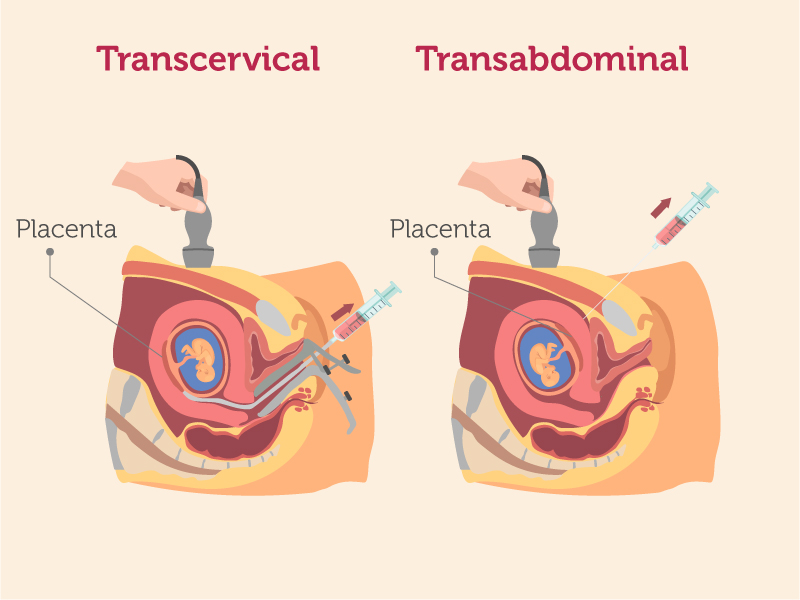If you have the test:
-
About 1 in every 200 women miscarryfollowing the test
- Less than 1 in every 1000 women develop an infection
-
Occasionally a CVS cannot give us any result, or the abnormality is only in the placenta (this is called confined placental mosaicism) and not in the baby – in these cases, we would offer you anamniocentesis).
It is not always possible to get a result from the first CVS. Up to 6 in 100 women (6%) will be offered a second procedure.
One in 200 women who have a CVS or amniocentesis will miscarry. We do not know why some women miscarry after these procedures. Most miscarriages happen within 3 days of the procedure, but they can happen up to 2 weeks afterwards. There is nothing you can do to prevent a miscarriage after a CVS or amniocentesis.
There is a risk of less than 1 in 1,000 that a CVS will cause a serious infection. You should call your midwife or doctor, or the hospital where you had the test, straight away if you experience any of the following symptoms:
- persistent or severe pain
- a high temperature of 38°C (100.4°F) or more
- chills or shivering
- heavy vaginal bleeding
- discharge of clear fluid from the vagina
- contractions

